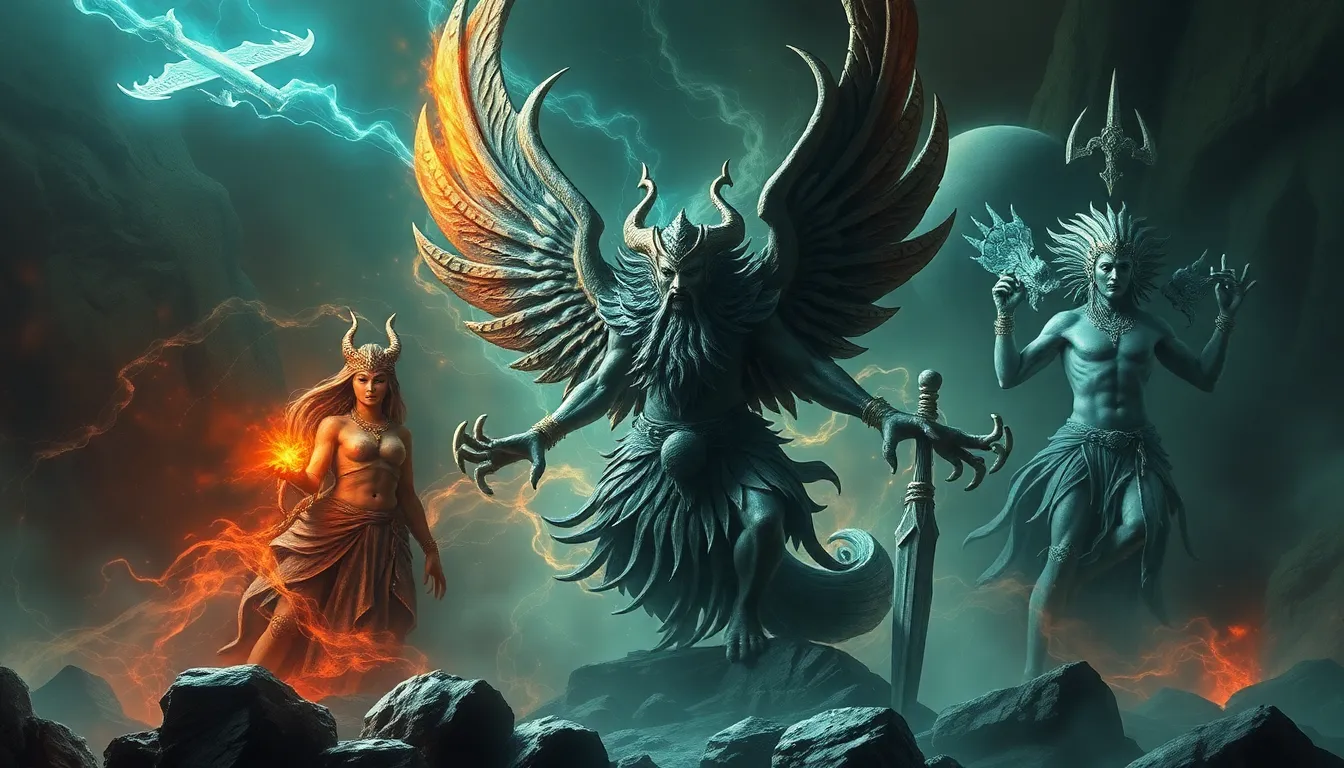End of Days: The Myths That Capture Our Imagination
Introduction: Understanding the End of Days Concept
The concept of the End of Days, or apocalypse, has intrigued humanity for centuries. It represents a culmination of fears, hopes, and the unknown. Different cultures throughout history have constructed their own narratives around this idea, often reflecting their values and existential concerns. The significance of the End of Days varies widely, encompassing themes of judgment, renewal, and despair. Over time, myths about the apocalypse have evolved, adapting to societal changes and technological advancements, yet they continue to resonate with people across the globe.
Historical Context of Apocalypse Myths
Apocalyptic stories can be traced back to the earliest civilizations, where they often served to explain natural disasters or societal upheaval. Ancient texts reveal a wealth of apocalyptic imagery and themes.
- Mesopotamian Myths: The Epic of Gilgamesh contains flood narratives that echo the themes of destruction and rebirth.
- Greek Texts: Works like Hesiod’s “Theogony” portray cosmic battles that lead to a new order.
- Indian Scriptures: Hindu texts describe cycles of creation and destruction known as Yugas, highlighting an eternal renewal process.
These early narratives set the stage for more structured religious apocalyptic beliefs that would emerge in later centuries.
Religious Perspectives on the End of Days
Many major religions have developed their own interpretations of the End of Days, often rooted in prophecy and scripture.
- Christianity: The Book of Revelation describes a final judgment and the establishment of a new heaven and earth.
- Islam: The Day of Judgment (Yawm al-Qiyamah) is a central theme, where all individuals are held accountable for their deeds.
- Hinduism: The concept of Kalpa signifies vast cycles of time, with the end of each cycle leading to regeneration.
- Buddhism: While less focused on an end-time scenario, teachings about impermanence and the cycle of rebirth intersect with apocalyptic themes.
These beliefs not only shape followers’ worldviews but also influence cultural narratives surrounding the apocalypse.
Cultural Reflections of Apocalypse in Literature and Art
Apocalyptic themes have found fertile ground in literature and art, where they serve as powerful allegories for human experience.
- Dante Alighieri: In “The Divine Comedy,” Dante explores the consequences of sin and the path to redemption, embodying apocalyptic themes.
- John Milton: “Paradise Lost” reflects on the fall of man and the implications of disobedience, offering a profound commentary on divine judgment.
- Modern Art and Film: Works such as “Children of Men” and “Mad Max” depict dystopian futures, illustrating humanity’s struggle amidst chaos.
These artistic expressions not only mirror societal anxieties but also provoke critical reflection on our values and choices.
Scientific Interpretations of the End of Days
In contemporary discussions, scientific theories concerning potential global catastrophes have gained prominence. Experts warn of various existential threats.
- Climate Change: Rising temperatures and extreme weather events pose risks to ecosystems and human survival.
- Asteroid Impacts: Scientists continue to monitor near-Earth objects that could threaten life on our planet.
- Technological Risks: The rapid advancement of artificial intelligence and biotechnology raises ethical concerns and potential dangers.
These scientific considerations challenge us to rethink our relationship with the planet and each other, urging proactive measures to mitigate risks.
Psychological Impact of Apocalypse Myths
Apocalyptic narratives resonate deeply with human psychology, tapping into our fears and existential questions.
- Fear of the Unknown: The uncertainty surrounding the future can lead to anxiety and dread.
- Collective Trauma: Communities may experience heightened stress during crises, often interpreting events through an apocalyptic lens.
- Existential Reflection: Such narratives compel individuals to confront their beliefs about life, death, and purpose.
Understanding these psychological dimensions is crucial for addressing the impact of doomsday thinking on mental health and social behavior.
Contemporary Movements and the End of Days
In the modern era, various cults and groups have emerged, focusing on predictions of the end times.
- Religious Sects: Groups like the Seventh-day Adventists emphasize prophetic interpretations of scripture.
- Survivalists: Some individuals prepare for apocalyptic scenarios, stockpiling resources in anticipation of societal collapse.
- Social Media Influence: Platforms like Twitter and Facebook amplify doomsday messages, creating echo chambers for apocalyptic beliefs.
The internet’s role in spreading these ideas has transformed how communities form around end-times prophecies.
The Role of Media in Shaping Apocalypse Narratives
Media plays a significant role in shaping public perceptions of the apocalypse through news reporting and entertainment.
- News Coverage: Sensational reporting on disasters can exaggerate fears and promote apocalyptic thinking.
- Films and Books: Movies like “The Road” and books like “The Stand” dramatize apocalyptic scenarios, captivating audiences with their narratives.
This interplay between media and public perception raises questions about the responsibility of storytellers in portraying dire futures.
Hope and Resilience in the Face of Apocalypse
Amid fears of impending doom, narratives of hope and resilience persist in apocalyptic myths.
- Survival Stories: Many cultures share tales of individuals or communities that overcome adversity and rebuild.
- Renewal Themes: Myths often emphasize rebirth, suggesting that endings lead to new beginnings.
These narratives inspire hope, reminding us that resilience is a fundamental aspect of the human experience.
Conclusion: The End of Days as a Reflection of Human Experience
The enduring appeal of apocalypse myths is a testament to their significance in human culture. They allow us to explore our fears, confront our values, and search for meaning in a complex world. As we navigate the uncertainties of existence, these narratives shape our understanding of the future, guiding us in our quest for hope and resilience.


